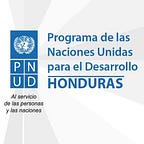The Reintegration of Victims of Violence that Use 3D Technology Prostheses
The violence that incites migration under irregular conditions
Honduras has suffered high levels of violence in recent years that affect the youth demographic the most. Solely in 2016, 67% of victims of homicide were men and women between the ages of 15 and 29.
Socioeconomic exclusion and marginalization are the main causes of the violence that plagues the country, pushing hundreds of young people to migrate and relocate internally to look for new opportunities or to protect their lives. During 2014–2015, 95,250 irregular migrants were deported, according to data from the Interinstitutional Commission for the Protection of Persons Displaced by Violence.
In order to make it to the United States, which is most of the migrants’ destination, the migrants undergo a treacherous journey, and many times they sacrifice their lives or suffer the loss of a body limb. According to the International Committee of the Red Cross, Honduras is the country with the most mutilated migrants in the region of Central America.
3D Technology at the disposal of people living with disabilities
Edwin is one of the hundreds of migrants who have suffered a type of accident in their attempt to reach the United States. He lost his hand and left forearm when he fell off the train after falling asleep.
Edwin (29 years) has a shy and contagious smile. When he saw his prosthesis for the first time, “I felt excited because I wanted to use it to know what I could do with it… Then I saw that I had movement in my fingers, that I could grab things and I felt very excited. I can now do things that I could not do before without asking for help because I did not have a left hand. ”
With access to quality prostheses, beneficiaries have better opportunities to reinsert themselves into the work force. Before the accident, Edwin’s hobby was drawing and painting, and now his skill became his source of income “now it is my job [painting]. I get asked often to make drawings for schools and paintings for houses, it’s a job I have now. It serves as entertainment and as a way to cope with stress and make some money. The prosthesis helps with my paintings. Before, I couldn’t hold the [paint] bottles, and now I can hold them close to me with my prosthetic hand, which is much easier.”
Having a prosthesis helps with independence and self-confidence. Edwin recognizes that this accident changed his life, and he declares that having these opportunities, such as access to a prosthesis, give him a new outlook on life.
“One’s life changes [after the accident]. One starts to live a new life as a disabled person. Thanks to God, opportunities like this one exist, helping us keep moving forward and taking on projects that one never thought could be achieved. From now on, I will take on new projects and try to help other people.”
Edwin is one of the 7 young men who have been identified with loss of hands and part of the forearm and have received a prosthesis made by 3D technology. Having a prosthesis will allow these young men to have independence and perform daily chores and some labor tasks. With a daily use, the prosthesis has a useful life of 5 years. 8 prostheses have been created.
About the project
Through the UNDP’s Innovation Fund, with the support of the Government of Denmark, the FAB LAB module of social entrepreneurship was developed in the Chamber of Commerce and Industries in Tegucigalpa.
The first initiative of the social entrepreneurship module was supporting the reintegration into the workforce and the improvement of the quality of life of young men living with disabilities through the development of orthopedic hand prosthesis in 3D. The prosthesis model was developed by the Fundación Guala-Manos en acción.
The project, in partnership with UNDP and the social entrepreneurship module of the FAB LAB in the Chamber of Commerce and Industry in Tegucigalpa, focused on the equipment of the module with 3D printers, a laser cutter, and a computer with design software.
Another part of the project was aimed at some of these young adults with an entrepreneurial spirit, who received consulting, business workshops, startup capital, and guidance in order to develop an entrepreneurial initiative with which they can have a source of income. Additionally, all of the young men obtained rehabilitation and functional therapy guidance to adapt to the prosthesis, with the help of the Universidad Nacional de Honduras.
Connection to the 2030 Agenda for Sustainable Development
This initiative supports the fulfillment of the Sustainable Development Goals #1 “No Poverty,” #8 “Decent Work and Economic Growth,” #10 “Reduced Inequalities,” #16 “Peace, Justice and Strong Institutions” and #17 “Partnerships for the Goals.”
